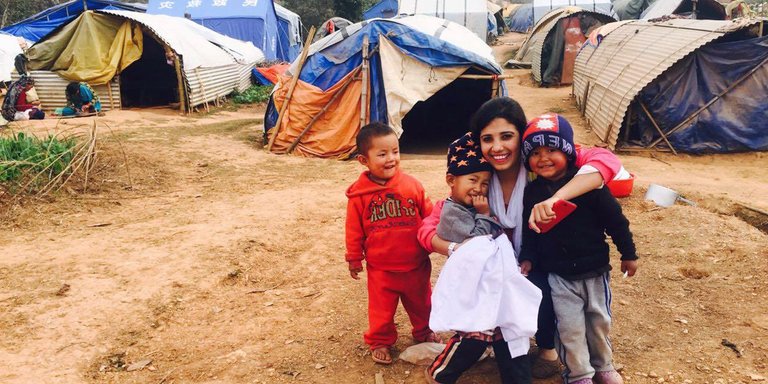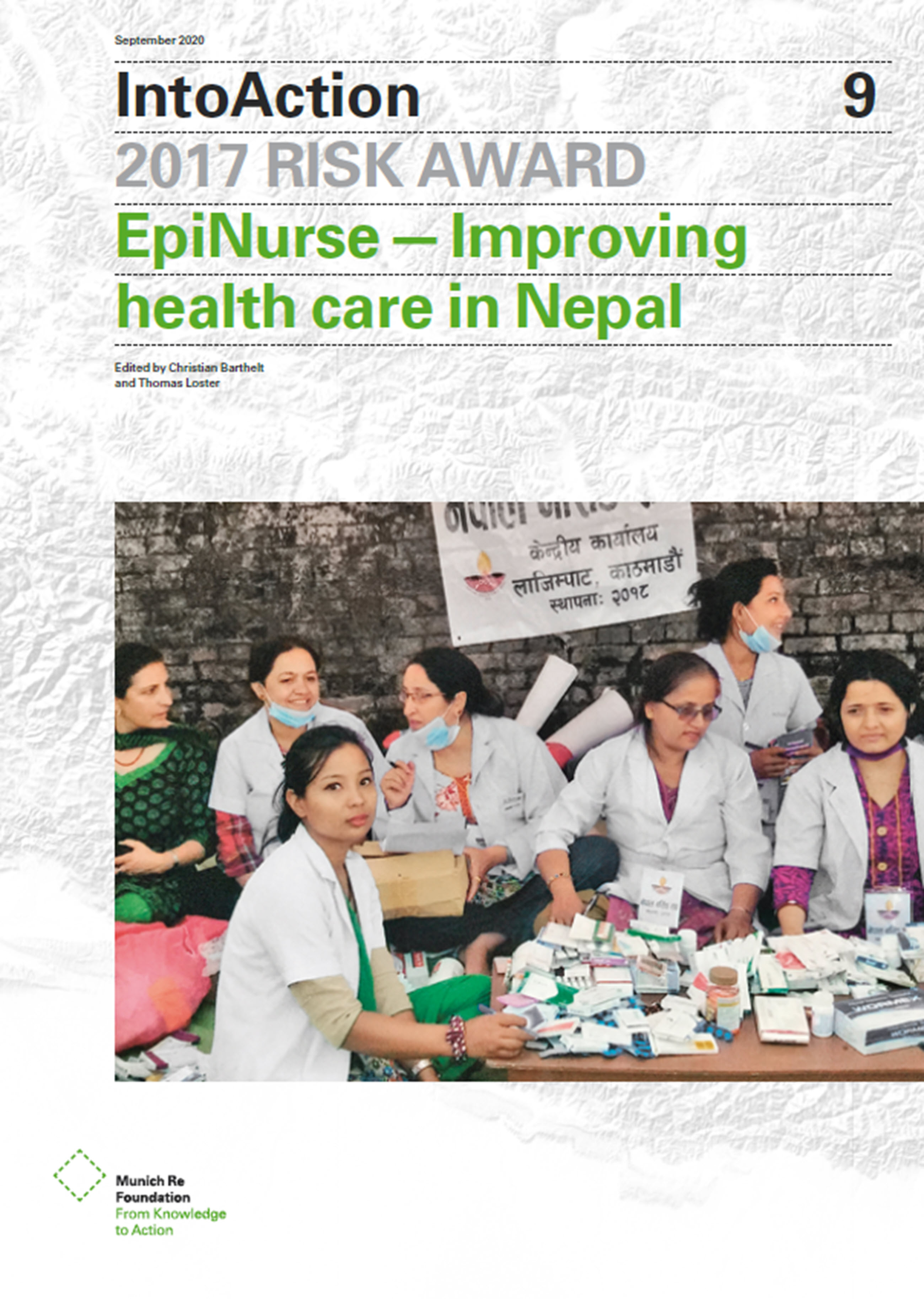
RISK Award 2017 - Nursing Association of Nepal (NAN)
"EpiNurse Project"
properties.trackTitle
properties.trackSubtitle
News from the project
Download the final project report
Especially before, during and after disasters – this part of risk management must function efficiently. On the one hand, the nurses operate in a smart world characterized by apps, tablets and more. On the other hand, they treat patients who sometimes do not even have electricity in their homes. This field of tension must be overcome.
About the project


The Munich Re Foundation and its partners UNISDR and GRF Davos were proud to announce the EpiNurse project as the winner of the 2017 RISK Award. The jury honoured the blueprint character of the project. Jury member Dr. Robert Glasser is convinced, that the EpiNurses will meaningfully improve disaster prevention in Nepal – and, in the future, hopefully in other countries of the world.
The prize was awarded on 24 May 2017 in a ceremony at the 2017 Global Platform for Disaster Risk Reduction in Cancun. This is one of the most important gatherings on reducing disaster risk and building the resilience of communities and nations worldwide.
During the ceremony, Sandra Wu, CEO of Kokusai Kogyo Co., Ltd, and jury member of the RISK Award emphasized the importance of new technologies for disaster risk management. At the same time she underlined that new technologies have to go hand in hand with traditional and local knowledge. Combining those two elements can create a safer environment for all. Thomas Loster, Chairman of Munich Re Foundation, thanked the hosts of the Global Platform for the opportunity to present three light-house projects including the winner to the public. Over 5000 delegates from all over the world attended the platform in Cancun.
Apsara Pandey, representative of the Nursing Association of Nepal (NAN), was delighted: “We are excited and happy to receive the 2017 RISK Award. This is a huge motivation for us to move on and empower the nurses in Nepal!”.








